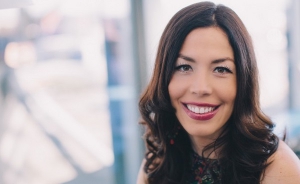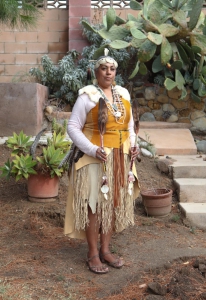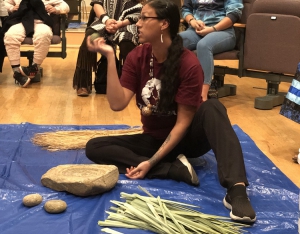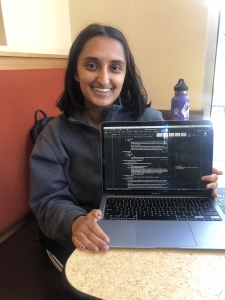 The support that I have received from UCLA’s Center for Community Engagement has been vital in my development as a scholar and teacher. I have greatly benefited from the Center’s workshops, cohort meetings, and resources that they have produced. The workshops I attended often featured scholars who demystified community-engaged research and teaching and provided tangible examples of how to structure courses and work reciprocally with community partners. The cohort meetings that I participated in as a recipient of the Chancellor’s Award for Community-Engaged Research further strengthened my pedagogy. These meetings included: opportunities to discuss what community-engaged research is and why it matters, share about our process, troubleshoot, create a draft of a new course syllabus, and receive feedback on our work. Most recently, in my fourth-year appraisal, I cited the Center for Community Engagement’s report, Recognizing Community-Engaged Scholarship in Academic Personnel Review.
The support that I have received from UCLA’s Center for Community Engagement has been vital in my development as a scholar and teacher. I have greatly benefited from the Center’s workshops, cohort meetings, and resources that they have produced. The workshops I attended often featured scholars who demystified community-engaged research and teaching and provided tangible examples of how to structure courses and work reciprocally with community partners. The cohort meetings that I participated in as a recipient of the Chancellor’s Award for Community-Engaged Research further strengthened my pedagogy. These meetings included: opportunities to discuss what community-engaged research is and why it matters, share about our process, troubleshoot, create a draft of a new course syllabus, and receive feedback on our work. Most recently, in my fourth-year appraisal, I cited the Center for Community Engagement’s report, Recognizing Community-Engaged Scholarship in Academic Personnel Review.
Funding from the Center for Community Engagement and the Chancellor’s Award allowed me to develop two courses. My 2020 “Dance: Colonization and Confinement” course collaborated with Tongva artists to host a series of four workshops on “Illuminating Tongva Embodied Knowledge and Sovereignty.” This course occurred shortly after UCLA adopted the Tongva land acknowledgement university-wide. It aimed put the land acknowledgement into action, as one version of it expresses gratitude for “the opportunity to work for the taraaxatom (the indigenous peoples) in this place.” This class facilitated the relationship-building necessary to create another community-engaged research course, titled “The Politics and Possibilities of California Tribal Dance,” for which I was the first Assistant Professor at UCLA to receive the Chancellor’s Award for Community-Engaged Research.
In this course, which I will launch in 2022-2023, undergraduate students will gather, organize, and report on primary and secondary documents, which California tribal individuals from the Tongva, Chumash, Ohlone, and Winnemem Wintu nations will then build on to revitalize their dances, which have been detrimentally impacted by settler colonialism.
documents, which California tribal individuals from the Tongva, Chumash, Ohlone, and Winnemem Wintu nations will then build on to revitalize their dances, which have been detrimentally impacted by settler colonialism.
I have received enthusiastic feedback on my community-engaged courses from the public, students, and community partners. The workshops on “Illuminating Tongva Embodied Knowledge and Sovereignty” were well attended by the public. The community-engaged component of the course, which modeled respectful and reciprocal relationships with community partners, also proved valuable to UCLA students, as they expressed in reflection papers that they wrote about the class content and in their evaluations of my teaching. In their evaluation, one student shared:
“I have truly enjoyed class with Dr. Blu Wakpa. I believe she models the integration of theory and practice in ways that I have almost never seen in an academic setting.”
About the collaborations with community partners, another student commented, “I think this was a necessary part of class that helped deepen our understandings of course material and our relationships with space and land. I wish opportunities like this could be incorporated into other higher ed spaces.” A third student referred to their experience in the class as “profound” and “the best course I have taken at UCLA.” The California tribal partners I am working with have also expressed their appreciation of our ongoing collaborations to the Graduate Student Researcher I brought in to support this work and myself.
“I think this was a necessary part of class that helped deepen our understandings of course material and our relationships with space and land. I wish opportunities like this could be incorporated into other higher ed spaces.” A third student referred to their experience in the class as “profound” and “the best course I have taken at UCLA.” The California tribal partners I am working with have also expressed their appreciation of our ongoing collaborations to the Graduate Student Researcher I brought in to support this work and myself.
From 2019-2021, with support from the Chancellor’s Award, I organized and hosted nearly twenty public presentations featuring mostly Indigenous scholars and artists, several of which were recorded for my community-partners’ usage and primary source materials for my future research. Based on these experiences, it is clear to me that community-engaged research and teaching has powerful and transformative possibilities. -Tria Blu Wakpa, Assistant Professor

The Center for Community Engagement created a new scholarship award that enabled undergraduates to turn their unpaid internships at nonprofits and other community-centered organizations into paid ones.
Maya Desai, senior public affairs major and urban and regional studies minor, interned with the City of Santa Cruz’s Parks and Recreation department. She helped create a centralized database of information about all the parks, beaches and coastal access points that are run by the Santa Cruz County Parks and Planning department. Maya noted how valuable her internships’ hands-on experience is to her overall education and career preparation. Maya said working with permits, development plans and other logistical aspects of urban planning gave her a new perspective on paperwork.
“I hadn’t learned about that in any of my urban planning classes, but through this process I realized nothing gets done without it,” said Desai, who seeks a future career in transportation planning. “It was definitely a reality check for me to understand this is what a large part of being an urban planner is going to be like on a day to day basis.” -Maya Desai
Shalom Staub, director of the Center for Community Engagement, said internships can be enormously impactful on a student’s development, enriching their academic learning and affording them a real-world taste of working in a prospective field of professional interest.
“I am so grateful to our donors for supporting these scholarships,” he said. “They made unpaid nonprofit internships accessible to students who might not otherwise have this opportunity at this critical moment in their education and pre-professional development.” -Shalom Staub

